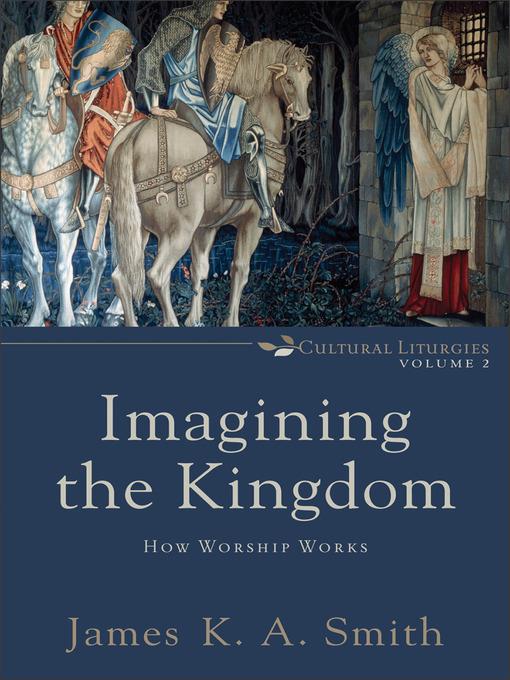
Imagining the Kingdom
How Worship Works
کتاب های مرتبط
- اطلاعات
- نقد و بررسی
- دیدگاه کاربران
نقد و بررسی

Starred review from December 10, 2012
In the second of three volumes on a theology of culture, Smith (Desiring the Kingdom) urges churches to move beyond pursuing liturgy as a means to an end and instead to understand the embodied aspects of worship—kneeling, standing, singing, the repetition of creeds—as ends in themselves. Through liturgical practices, worshippers develop habits that turn them toward enacting God’s shalom kingdom in the world. Arguing that we are guided primarily by imagination, which is primed through the conduit of the body, Smith maintains that the structure of church liturgies matter deeply in providing a counterweight to the liturgies of self-centeredness promoted in the larger culture. Churches that rely too heavily on word alone, or which conform to a mall-culture ethos, threaten to deny people the holistic formation a classic church liturgy provides. Smith uses literature, poetry, philosophy, and film to make a compelling case that it would behoove churches and seminaries to attend more closely to imagination and aesthetics rather than doctrine as central to developing an other-oriented Christian desire.

May 15, 2013
The second of a projected three volumes on Christian worship by Smith (philosophy, Calvin Coll.; Desiring the Kingdom: Worship, Worldview, and Cultural Formation), this book focuses on the process through which liturgy, or scripted group participation in action, transforms its participants in both spiritual and secular contexts--making a difference in the way worshipers feel, think, and act in relationship to self, others, God, or a secular goal. Following philosopher Maurice Merleau-Ponty, Smith emphasizes the role of performance through body, perception, story, and imaginative participation in shaping both secular and Christian worldviews. He vivifies his discussion by analyzing contemporary literature, film, and human creativity as catalysts for worldview transformation. Good liturgy, says Smith, embodies habits of expression including bodily expression. Liturgies must not be simply the spouting of doctrine. Smith addresses both academic and more popular concerns in relation to his broader definition of liturgy. VERDICT An important book that may have wide appeal among serious readers in relation to secular education as well as Christian transformation.--Carolyn Craft, Emerita, Longwood Univ., Farmville, VA
Copyright 2013 Library Journal, LLC Used with permission.

























دیدگاه کاربران